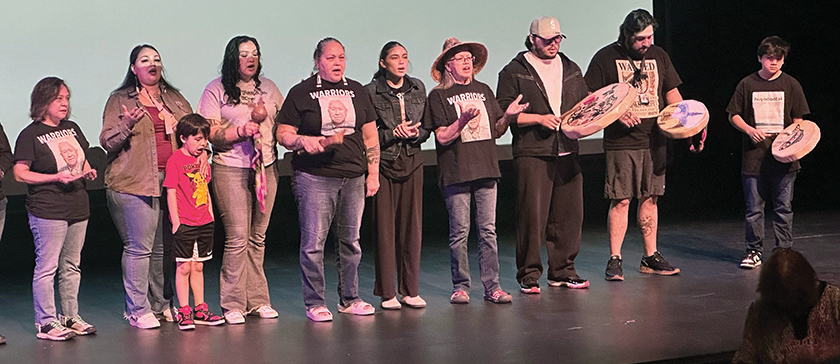
By Wade Sheldon, Tulalip News
A quiet war rages in the foggy waters between traditional and territorial lines, where fishing for Indigenous coastal communities of Washington State is not just a means of survival—it’s a vital aspect of their identity. As governments encroached upon fishing grounds and enforced maritime laws, the tribes of Washington fought to uphold their sovereignty, which was established in the 1855 Treaty of Point Elliott. The age-old rights to the sea are being challenged, and at stake is not merely access to resources but the fundamental right to exist as sovereign people in a world where states are tightening their grip on the waterways.
One powerful example of this struggle is captured in Fish War, a compelling documentary highlighting the challenges faced by the Coast Salish Indians in Washington. As they fight to fish in their ancestral waters and co-manage fisheries, the film provides profound insight into the importance of protecting sovereign rights. It illustrates that these rights are defended in the waters and the courtroom.
The Everett Performing Arts Center hosted the Everett Film Festival on Saturday, April 5, showcasing various films over two days. For over 25 years, this festival has celebrated local and national filmmakers. This year, Tulalip contributed at the screening for the documentary “Fish Wars.”
As the festival got underway, Patti Gobin said a few words before leading members of the Tulalip Tribes in an opening song before the film started. She said, “We are stronger together than apart.” A fundamental aspect that played a major role in what the tribes had to do.
After the film ended, Northwest Indian Fisheries Commission Chairman Ed Johnstone said a few words. “I am very proud of this film. It hits on all the major components of how we found ourselves, signing treaties. And the expectation when we signed those treaties was to become citizens of the territory. They used the language “citizens of the territory” because it was many years before statehood.”
When speaking about how he wished non-natives would receive the film, Johnstone said, “I hope they realize how we got to the courts and prevailed. I also hope they ask themselves how can we bring the salmon back?” He then discussed what actions we must start doing to help the salmon now. “Recovering the streams and suitable habitat. That’s where the battle is in the habitat. If we don’t start winning that battle, we will be down to zero fish and out of business.”
When talking about the youth and what was intended for them to take away from the film, Johnstone said, “First of all, we want to leave the place better than when we found it. We also want to get them energized to get in there and help. They are our future leaders. Our messaging has to be relevant to them and their way of life. We want to equip them to succeed.
Johnstone continued, “We are just going to keep telling our story about who we are. We aren’t going anywhere. This is Indian land here in Washington State, where we hold our treaty rights and will be the voice for the habitat. The fish that can’t speak for themselves, we have to do that.”
As the tides of policy and climate continue to shift, the voices of Washington’s tribal communities remain steady-rooted in generations of knowledge, resilience, and responsibility to the land and waters. The story in Fish War is not only a call to recognize treaty rights but a reminder that the health of our environment is deeply intertwined with the survival of Indigenous lifeways. In standing firm for their sovereignty, the tribes also stand up for a more sustainable and just future for all.
If you want to watch the movie, it is currently available for preorder on Amazon Prime and is expected to release on April 15.